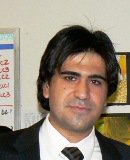Everyday Resistance in Syria and Iran
The Power of Big Numbers
As the Middle East uprisings and their aftermaths have captured news headlines around the globe, the Syrian and Iranian people have been struggling to pressure their governments to meet their legitimate demands.
Having grown up in both Syria and Iran, I have the on-the-ground experience that helps me understand the reasons behind these peoples’ socio-economic and political demands. Living in these two distinct cultures and societies illuminates the Syrian and Iranian regimes’ inability to respond to their peoples’ economic, social, political, and civic needs.

The authoritarian structures of these states, and their highly repressive security apparatuses, have made it very difficult for people to organize and coordinate freely-expressed social movements. The Syrian and Iranian governments rely heavily on hard power to suppress any opposition, even if the opposition is in the form of peaceful protest. In Iran, the security apparatuses are instituted in a legal system which is enforced by judicial and executive institutions such as the Basij, Revolutionary Guard, moral police, Pasdaran, and the military. In Syria, the main security institutions are the Mukhbarat or military intelligence, security forces, and plain clothes policemen. All of which serve to carry out violence and repression against the people of their respective regimes.
The people’s resistance is carried out during ordinary, everyday activities as opposed to the mobilization of protests, attending meetings, lobbying, petitioning, and so on.
For instance, in Iran, women who strive to play sports, attend college, work in public, or choose their own partners do so as a form of resistance. Additionally, young people struggle to wear what they like and listen to the music they wish. In Syria, young people struggle to express their demands and rights for political and socio-economic reforms through blogs, Facebook, Twitter and other forms of social media. Ordinary people challenge the sovereignty of the state throughout their day-to-day lives.
The efficacy of these forms of resistance rests upon the “power of big numbers” that have developed through these everyday activities. “Big numbers” of protestors have taken to the streets in Iran to join anti-government protests that demanded the release of two opposition leaders, Mousavi and Karroubi. They chanted “death to the dictator” and “Khamenei is a murderer. His authority is void.” Tens of thousands of demonstrators marched in the capital city Tehran on February 14, despite the security crackdown. Mousavi’s website reported that Iran’s security forces used tear gas and batons to disperse crowds of protestors; security forces apparently killed two people and wounded dozens.
In Syria, on March 22, hundreds of people gathered in Daraa asking for greater political freedom and an end to corruption, but security forces fired bullets as well as tear gas at the protestors, causing several deaths and injuries.
In Santa Barbara, people and students have expressed their support for the democratic and peaceful movements in the Middle East. Congresswoman Lois Capps has been inspired by ordinary people’s movements, stating, “As an American, I can’t help but be inspired by the ability of ordinary citizens, especially the young people of Egypt, to come together with a common purpose to reshape the future of their nation.”
Why have protests and demonstrations in Syria and Iran have not yet led to a regime change? Firstly, the Iranian and Syrian regimes will not hesitate to use heavy machine-guns, hard power, violence to kill thousands of their own people, which instills fear in the protestors. Secondly, these governments have not allowed for the development of civil society institutions.
However, as we witnessed in Tunisia and Egypt, the collective action of non-collective actors can quickly turn into millions of people demanding revolution. The Iranian and Syrian regimes should look closely at these events and realize that no matter how much hard power and violence they use against their own people, history has shown that people’s power does always win.



